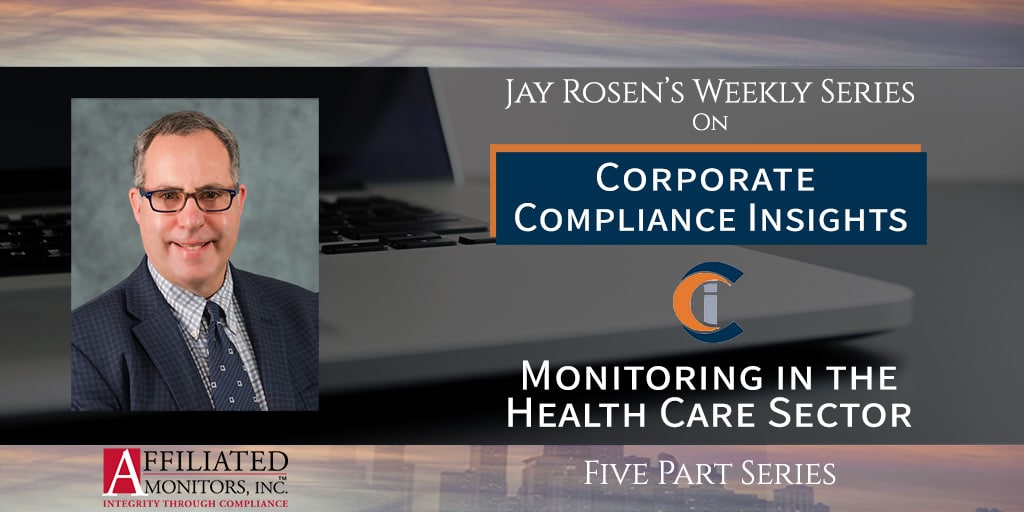
Jay Rosen begins a deep dive into health care monitoring and how the proactive use of a health care monitor can positively impact all stakeholders: the regulators, the industry itself and the consumers of health care services, the public.
Day 1: The Challenges for and Benefits of Monitors in Health Care
“The size of the health care industry accounts for almost 20 percent of our economy . . . When you have lots of money being spent in an industry, there is always the potential for fraud, waste and abuse. Now, overlay this with the public money involved, and there is the potential for a False Claims Act or government action, whether civil or criminal.
Independent integrity monitoring can proactively assess compliance programs and culture and identify potential areas of compliance risk. Furthermore, they can help mitigate or limit the adverse consequences of violations and help persuade regulators to look more favorably on an organization.”
Day 2: Proactive Assessments of Health Care E&C Programs and Culture
“Not every health care organization has a good handle on how effective their compliance program is and whether the culture of the organization is such that compliance risks are likely to be promptly identified, mitigated and remediated . . . An independent compliance expert can bring a fresh set of eyes to any organization or entity.”
Day 3: Use of Monitors in Licensing and Disciplinary Proceedings
“How Can an Independent Integrity Monitor Serve as an Overall Part of a Resolution? An independent integrity monitor can be an excellent option, as it allows the health care provider to continue to practice while providing prompt feedback to the agency about whether the health care provider is making promised changes . . . the independent integrity monitor can provide tailored advice about how to bring the practice up to professional standards.”
Day 4: Use of Monitors in Administrative Proceedings
“A monitor can review the paper trail indicating that the agreed-upon processes are in place and can help to keep a health care provider’s compliance program on a schedule so that it does not slip too far down the list of the acquiring company’s priorities.”
Day 5: Limiting Adverse Consequences
“Using an independent compliance expert can be useful in dealing with a government enforcement agency and convincing that agency to look more favorably where severe sanctions might otherwise be imposed . . . This can help to provide both confidence to the public that the entity can continue to operate safely in compliance and assurance to the government and regulators that it can continue to participate in the government programs with little fear of having those violations reoccur.”



